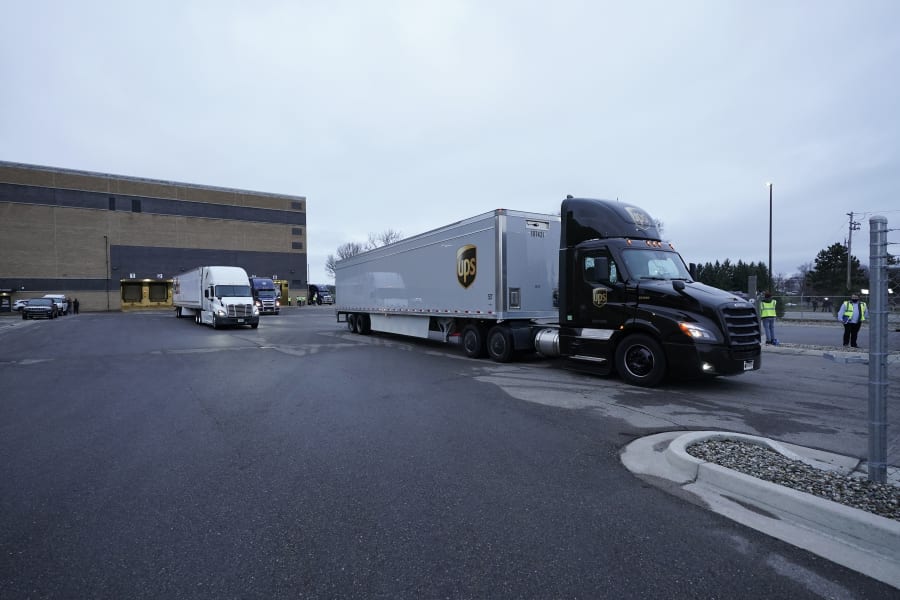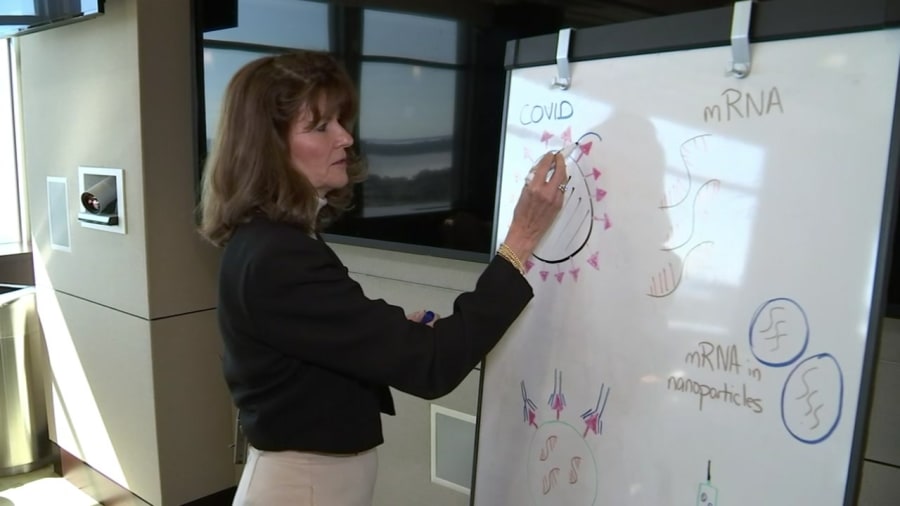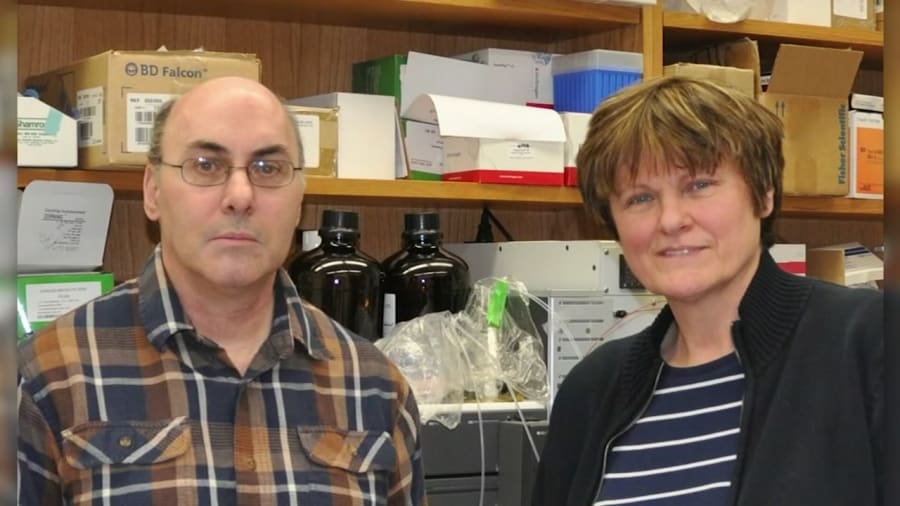JACKSONVILLE, Fla. – One of the doctors who created the technology behind the COVID-19 vaccine hopes anyone refusing to get the shot out of fear it was created too fast will realize that’s simply not true.
News4Jax has had viewers say they will skip the vaccine because it was developed too quickly or they want to wait and see how it goes with the first group of people who get it.
That’s why we tracked down the doctors who created the technology for the vaccine, which was not something they did a few months ago. Actually, it was about two decades ago.
A medical breakthrough
There is nothing remarkable about the steel containers that store the COVID-19 vaccine, nothing glamorous about the run-down Regency Square Mall where the shots are given, but the technology inside every vial is nothing short of a medical breakthrough.
“That was just a remarkably uplifting moment. All of us were watching on TV the trucks leaving the facility from Kalamazoo, Michigan. It was incredibly touching, and we were watching trucks driving, but it really was,” said Baptist Health Executive Vice President and Chief Physician Executive Dr. Elizabeth Ransom.
A moment of relief watching doses of the Pfizer vaccine shipping out was clouded by the fact that having a vaccine doesn’t mean anything unless people are willing to get the shot.

If the majority of people don’t get the vaccine, Ransom said, “That’s a problem.”
“Because we won’t ever get to that level where the virus won’t wash out of the system and it will persist,” Ransom said.
Researchers estimate at least 70%, or 200 million people across the country, need to get the vaccine to create herd immunity.
How does the vaccine work?
But we understand there are hesitations, so let’s break down how the vaccine works.
“So we have the COVID virus, we’ve all seen the virus with pictures and the little red -- what we call spike protein,” explained Ransom.

Those little spike proteins help the virus get into a person’s healthy cells and make them sick. The vaccine is designed to target those spike proteins. It does that by using messenger RNA technology used by Pfizer and Moderna. Researchers were able to code the mRNA in the vaccine to go into a person’s body and create only the spiked proteins around a healthy cell without ever injecting a live virus into the body. As a result, the body will see the spiked proteins as a threat and create antibodies.
“So that down the road, if your body is actually infected with the COVID virus, it’s already been exposed to those spike proteins, and it responds, and you don’t get sick,” Ransom said.
Ransom joined us on The Morning Show on Friday to talk more about the safety of the vaccines.
Watch her interview below:
The technology is not new
It all comes down to this mRNA technology. Without it, the vaccine wouldn’t exist.
But this technology is not new.
Dr. Drew Weissman with Penn Medicine said it has been at least 22 years since he started developing the technology.
Weissman and Dr. Katalin Kariko are the scientific team behind the mRNA technology now used in both the Pfizer and Moderna COVID-19 vaccines.
“It’s kind of a dream come true that our vaccine would be useful in protecting the world against COVID,” Weissman said.

The history behind the RNA technology starts in 1990. First, researchers from the University of Wyoming published a study testing RNA in mice.
But for years, the science was never fully safe to continue use -- until 2005 when Weissman and Kariko published a study following eight years of research.
“That’s when things turned around because now you could give to animals, people safely, and when we tried it out as a vaccine, it worked better than expected,” Weissman said.
Over the last 16 years, that technology has proved effective against many other viruses.
“We’ve done, probably, 30 different vaccines for 30 different pathogens over the years in lots of different animal models for everything from malaria to influenza to Ebola -- a bunch of different things,” Weissman. “And in just about every single experiment, we get 100% efficacy with this vaccine.”
So when Weissman saw the trial results showing that the Pfizer and Moderna vaccines were almost 95% effective in humans against COVID-19, he said, “It was really more a sigh of relief.”
The science they spent decades on worked like it was supposed to.
Weissman is so confident in the vaccine he enrolled his wife and daughter into Pfizer’s phase three trial.
In December, Weissman and Kariko got the vaccine they helped create.



